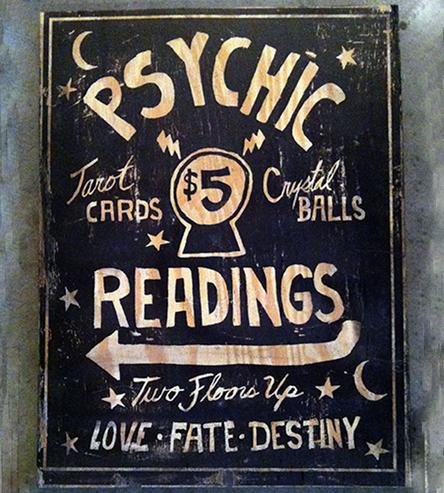 I’ve posted this EXACTLY when I meant to, which is exactly two months later than I should have posted this.
I’ve posted this EXACTLY when I meant to, which is exactly two months later than I should have posted this.
So I’ve been on a bit of a hiatus. My apologies. I’m back with a vengeance to share wondrous tales of freelance heroism, hardships and glory!
To begin my tale, I’ve just returned from a trip to New Orleans, whereby I encountered a psychic. Ok, a psychic and a huge amount of booze. But the psychic was the highlight.
As I sat down to have my palm read, the first thing he said to me, while pointing to a little y-shaped crease in my palm, was “I see you are a writer…” Holy telepathy, Batman! Get out of my head!
He followed with “…but you never write for yourself anymore. Only for others. Your writing is out of balance. If you find the time to write for you, the other writing will improve.” Cut to me falling out of my chair. (From shock. Not from booze. I know you were thinking it.)
Of all the things he said to me during my 15-minute palm reading, this stayed with me the most. And whether or not he can see into the future or can read into my soul via my palm, he was onto something. I never write for “me” anymore.
15-year-old me understood the balance: Finish your book report, and then spill your guts to your diary about that “B,” Stephanie, who tried to tell you that your perm looked like fried crap.
20-year-old me understood the balance: Finish your article for the college paper, and then blog about the importance of finding a mini skirt that does double-duty in hiding my new-found pizza gut.
Even 25-year-old me in journalism school understood the balance as I updated my MySpace status with deeply introspective thoughts on the new Rihanna single.
So why doesn’t 3[number deleted] -year-old me understand the balance? All work and no play makes Mandy dull.
So my advice to you, and to myself, is to make as much time for the fun, personal writing as you do for the clients.
Clients are wonderful. They pay the bills, but don’t let them have ALL of your creativity. Reserve some for yourself! Whether you blog beautiful advice to others, or scribble dirty limericks onto Post-it notes, don’t forget why we got into this mess in the first place – because before the clients came along, you simply loved to write. Cheers to that! *hic*
Amanda Smyth Connor is a social media manager for a major publishing company and has managed online communities and content development for many start-up and Fortune 500 companies. She has been a professional writer/editor for more years than she can remember. You can find her at the bar, where most writers do their best work.


